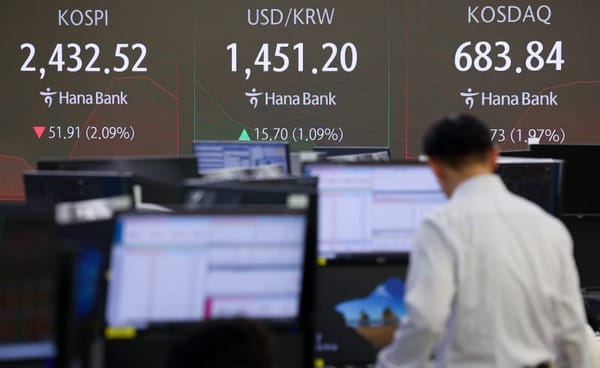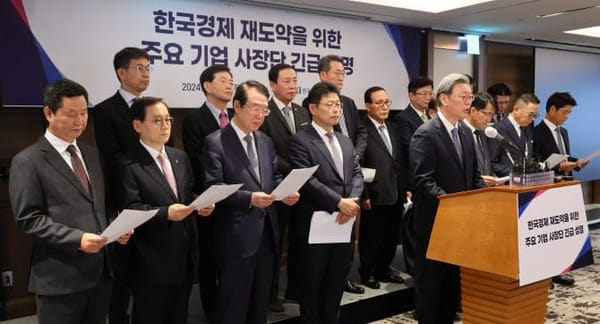Photo: Justice Party's Assembly Member Bae Jin-gyo demands sanctions for South Korean officials in the wake of the Lone Star Funds arbitration award. Credit: Office of Assembly Member Bae Jin-gyo.
One of the biggest business litigations in South Korean history has concluded its decade-long journey. On August 31, the arbitration tribunal at the International Centre for State-Investor Dispute (ICSID) ordered the government of the Republic of Korea to pay USD 216.5m to Lone Star Funds, a private equity fund based in the United States. The dispute was centered on Lone Star’s acquisition and sale of Korea Exchange Bank (KEB) 외환은행 in the early 2000s.
In 2003, Lone Star paid USD 1.2b to acquire KEB, then South Korea’s fifth largest bank and in dire straits following the East Asian Financial Crisis and the Dot Com Bubble. The acquisition at the time was controversial, as Lone Star required a governmental waiver of the regulation that prohibited a non-financial institution such as a private equity fund or hedge fund from acquiring a bank. Later in 2006, the Korean government investigated both KEB and Lone Star, based on the allegation that the waiver was improperly granted as KEB’s financial conditions were not as dire as portrayed at the time.
Although Lone Star had several prospects to sell KEB at a significant profit - most notably to HSBC in 2007 - the Korean government blocked each attempted sale, arguing Lone Star could not sell while it was under investigation. Ultimately, Lone Star sold its controlling stake in KEB to Hana Financial Group for USD 2.8b in 2012. Lone Star sued the Korean government the next year, claiming mainly that it was denied the opportunity to sell KEB at a significantly higher price. The ICSID tribunal agreed with Lone Star on the merits of the case, but calculated a much lower range of damages - a fraction of the USD 4.7b claimed by the private equity fund.
The arbitration has been marked with nationalistic sentiments against foreign investors, who were characterized as “eat-and-run 먹튀” vultures who were only concerned with quick profit without giving any thought to saving jobs or growing the economy. The negative sentiment against foreign investors also extended to the system of investor-state arbitration as a whole, as it was seen as a mechanism for international financiers to bully smaller economies.
The loss is also an embarrassment for the Yoon Suk-yeol 윤석열 administration, as several of its highest officials were implicated in the dispute. Finance Minister Chu Gyeong-ho 추경호 재정경제부 장관 and the Financial Services Commission’s head Kim Ju-hyeon 김주현 금융위원회 위원장 were two of the government officials who approved KEB’s sale to Lone Star in 2003; Prime Minister Han Deok-su 한덕수 국무총리 was a senior advisor to the prestigious law firm Kim & Chang 김앤장 at the time when the law firm was representing Lone Star in its acquisition of KEB.








